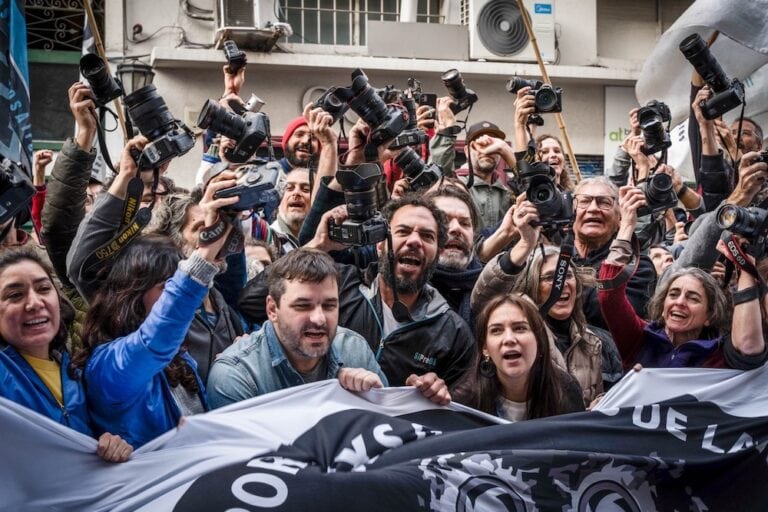(RSF/IFEX) – RSF is protesting the sentence given to journalist Eduardo Kimel. **Updates IFEX alert of 9 April 1999** According to RSF’s information, on 8 April 1999, Kimel, independent investigative journalist, was given a one year suspended prison sentence for defamation, and was fined US$20,000 payable to judge Guillermo Rivarola. In his book “La Masacre […]
(RSF/IFEX) – RSF is protesting the sentence given to journalist
Eduardo
Kimel.
**Updates IFEX alert of 9 April 1999**
According to RSF’s information, on 8 April 1999, Kimel, independent
investigative journalist, was given a one year suspended prison
sentence for
defamation, and was fined US$20,000 payable to judge Guillermo
Rivarola. In
his book “La Masacre de San Patricio” (the San Patricio massacre), the
journalist criticised the judge for not having sufficiently
investigated the
4 July 1976 assassination of five persons by death squads,
emphasizing
the
fact that noone was arrested for the crime.
In December 1995, a similar verdict was passed, but in November 1996
the
Court of Appeals dismissed the matter, ruling that that the
incriminatory
passages in the book were not defamatory. After judge Rivarola
appealed the
decision, in December 1998 the Supreme Court ruled that the Court of
Appeals
decision had no legal standing and asked that the matter be tried
again.
This latter verdict was recently announced.
RSF is concerned that Kimel’s sentence will make independent
journalists
self-censor themselves when it comes to having their research
published,
particularly if it looks closely at the judiciary system during the
time of
the dictatorship (1976-1983). The fine of US$20,000 is dissuasive and
“disproportionate”, particularly as one of the Courts that ruled on
the
matter did not consider that there had been harm to the plaintiff.
RSF notes that a prison sentence is considered, by international human
rights entities, a “disproportionate” penalty for crimes related to
expressing an opinion, when the harm suffered by the victim is taken
into
account. In a document dated 14 July 1992, the United Nations Human
Rights
Commission emphasizes that “detention as a penalty for expressing an
opinion
is one of the most reprehensible ways of silencing (an opinion) and,
as
such, is a serious human rights violation.” This explains why
currently no
democratic state hands out prison sentences in matters related to the
press.
Recommended Action
Send appeals to the Minister:
verdict
is reconsidered
Appeals To
Raúl Granola Ocampo
Minister of Justice
Buenos Aires, Argentina
Fax: +54 1 328 53 95
Please copy appeals to the source if possible.


